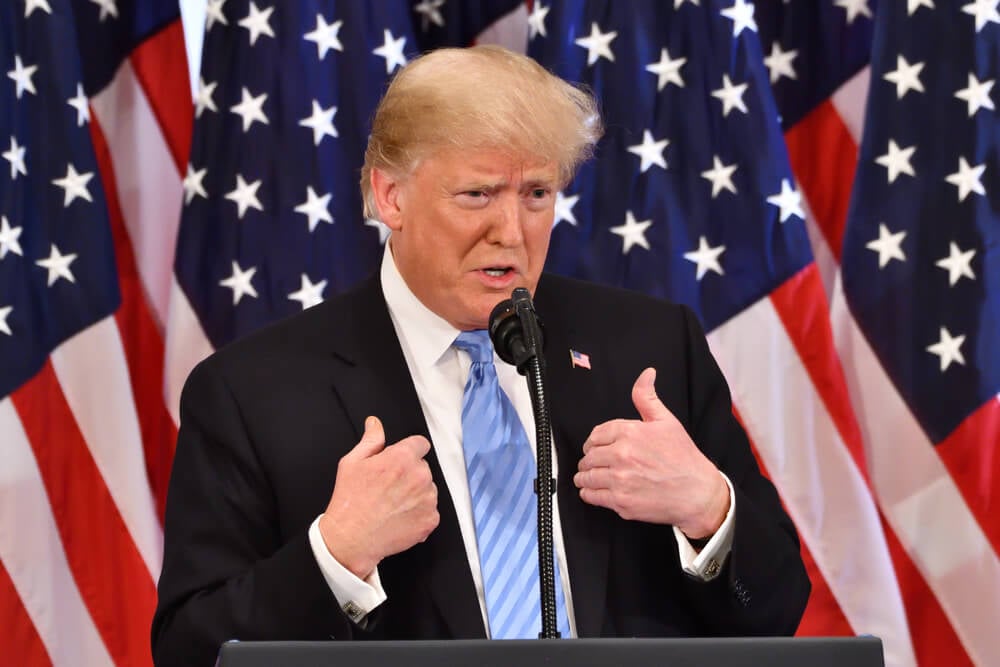If the Chinese want to know where to direct investment to edge ahead of America’s global ranking in science and research, just look at where Donald Trump’s cuts are hitting hardest.
Cornell University, to take one example, has seen $1 billion in grants frozen for research into “new materials for jet engines, propulsion systems, large-scale information networks, robotics, superconductors, and space and satellite communications, as well as cancer research.”
Trump’s drive to bring universities under his administration’s control with budget cuts and ideological conditions had appeared to leave the US in the midst of a reverse-Sputnik moment: the opposite of the national drive in technology and science sparked by the Soviet Union’s launch of the first artificial satellite in 1957.
The first stirrings of serious dissent to Trump emerged this week when Harvard became the first university to refuse to comply with federal demands in return for funding, raising prospects for a concerted push against academic appeasement.
Universities had mostly stood on the sidelines as the Trump administration withdrew funding, revoked hundreds of student visas and made demands that cut sharply into principles of academic independence.
The torch-bearer of opposition
Harvard is seen as the best torch-bearer of opposition. It was founded in 1636, before the US itself was born in 1776, and its endowment was worth $53.2 billion last year, bigger than the gross domestic product of around 100 countries.
The endowment includes funds with restrictions allowing them to be spent only for specific programmes and uses. But part of their function is to be used in emergencies “and covering federal funding lapses surely counts as one,” said Lawrence Summers, former president of Harvard and Treasury secretary between 1999 and 2001.
"Without acts of resistance, what protects the rule of law?" - Lawrence Summers
“Institutions such as Harvard, the administration’s most recent target, have vast financial resources, great prestige and broad networks of influential alumni. If they do not or cannot resist the arbitrary application of government power, who else can? Without acts of resistance, what protects the rule of law?” he wrote.
On 14 April, Harvard stood up and called Trump’s demands illegal. “No government — regardless of which party is in power — should dictate what private universities can teach, whom they can admit and hire, and which areas of study and inquiry they can pursue,” said Alan Garber, Harvard’s president, in a statement.
Trump has hit back quickly. The US Internal Revenue Service is said to be thinking about revoking Harvard’s tax exemption and Trump has threatened to strip its funds.
A long battle
Faculty and students are gearing up for a long battle as the administration is in no mood to back down in its fight with universities as well as other centres of “woke” and “liberal” power, including the judiciary, federal bureaucrats and the media.
Trump’s war against academia began with a Task Force to Combat Antisemitism to deal with protests against Israel’s response to the Hamas attacks of October 2023.
Harvard and Columbia were singled out, but other Ivy League universities also targeted include Princeton, Brown, Cornell and Northwestern out of a list of 60 institutions being investigated by the Justice Department for claims related to antisemitism.
The University of Pennsylvania, meanwhile, separately had $175 million in funding frozen for allowing a transgender athlete to participate in a swimming championship.
Americans were almost equally divided between those who had confidence in higher education and those who did not
Max Eden of the right-wing American Enterprise Institute think tank laid out the administration’s thinking in an op-ed last December.
“America has spent the past four years under an administration that governed according to university-created woke ideology,” he wrote. “In the past year alone, college presidents kowtowed to pro-genocidal campus quad glampers. All of this has totally flipped Republicans, and so many people in general, against our universities.”
He may have a point about public opinion. Americans were almost equally divided between those who had confidence in higher education and those who did not, the pollsters Gallup found last year. Some 45% of Americans believe that colleges and universities negatively affect the US, the Pew Research Center found.
Trump’s war against diversity
While Trump may have caused a great deal of disquiet with his tariff and trade policies, he still appears to enjoy support in his war against diversity, equity and inclusion programmes, the end to any hiring based on race, religion or sex, and crackdowns on student protests.
Nonetheless, capitulation to the administration did Columbia University no good, and its resolve to defend its independence seems stiffened by Harvard’s principled stance.
 While Trump may have caused a great deal of disquiet with his tariff and trade policies, he still appears to enjoy support in his war against diversity, equity and inclusion programmes
While Trump may have caused a great deal of disquiet with his tariff and trade policies, he still appears to enjoy support in his war against diversity, equity and inclusion programmes
Columbia had hoped to restore $400 million in federal funds from Trump, and so it agreed to his demands, including the empowering of security officers to arrest people and reassigning control of its Middle East department.
But on 14 April, Claire Shipman, Columbia’s acting president, said in a letter sent to students and faculty that it would not allow the federal government to “require us to relinquish our independence and autonomy.”
The war against universities is likely to grind on to the detriment of US leadership in research and science. But Harvard has vowed to fight on.
“The university will not surrender its independence or relinquish its constitutional rights,” said the university’s lawyers in a letter sent to the Trump administration on 14 April. “Neither Harvard nor any other private university can allow itself to be taken over by the federal government.”